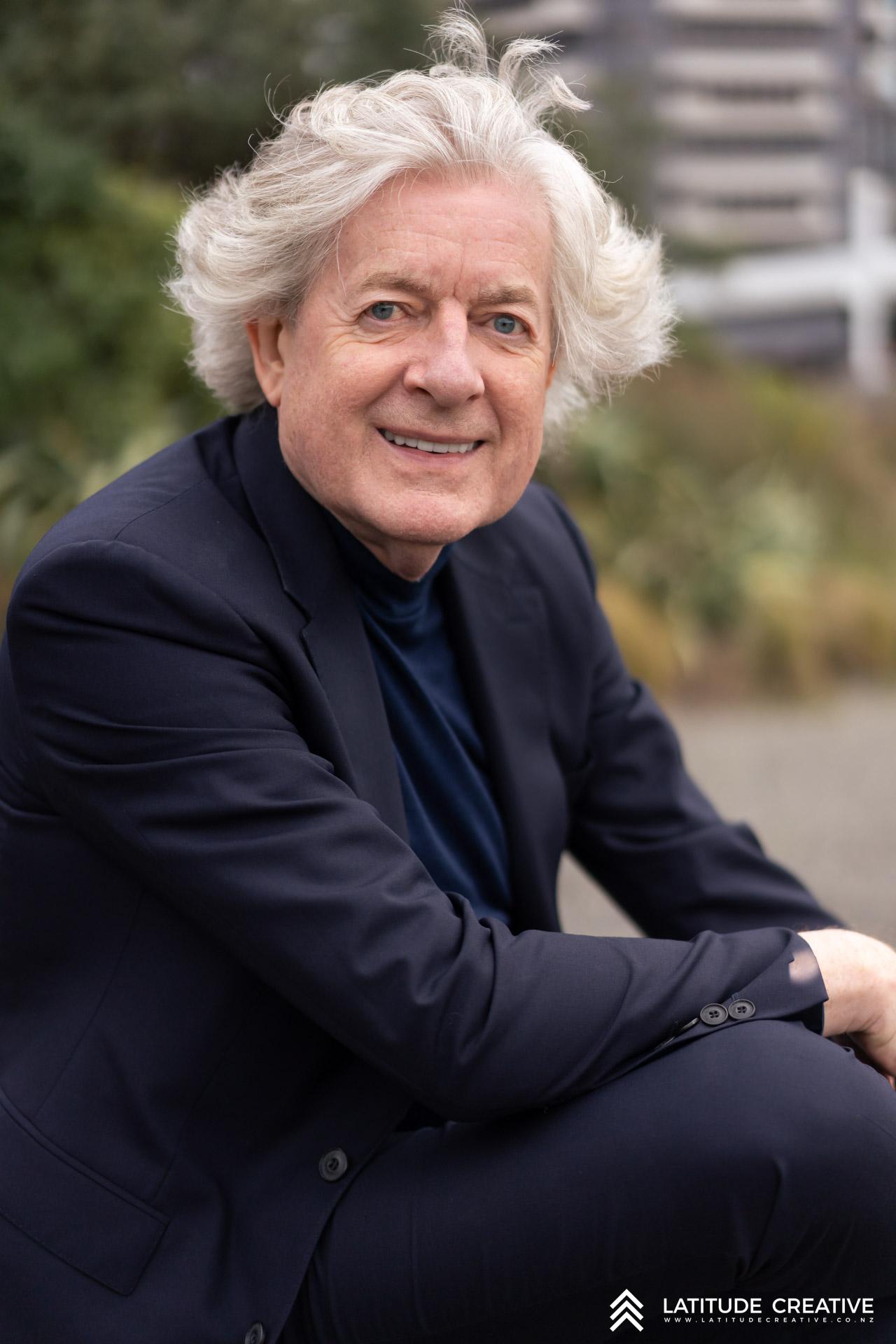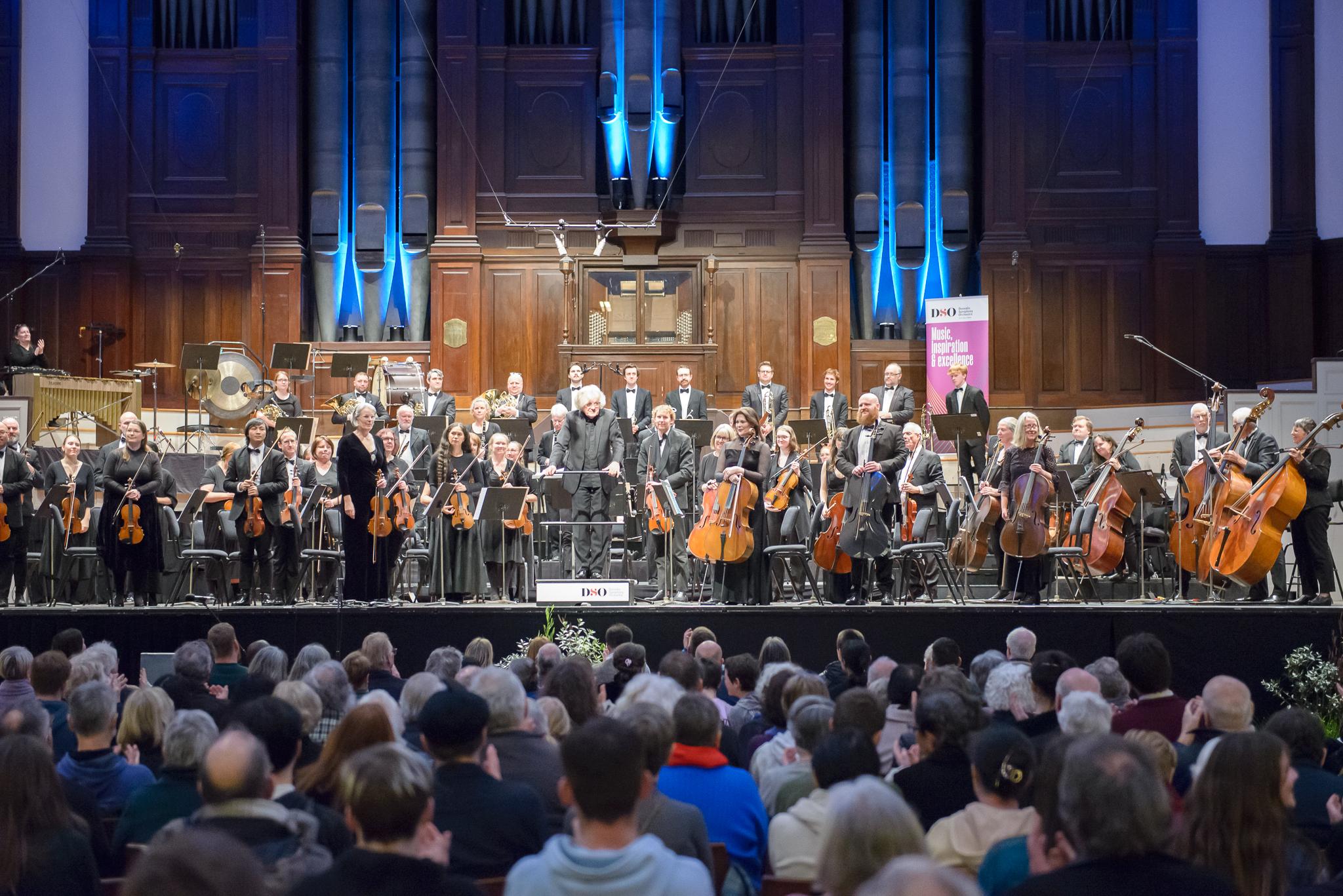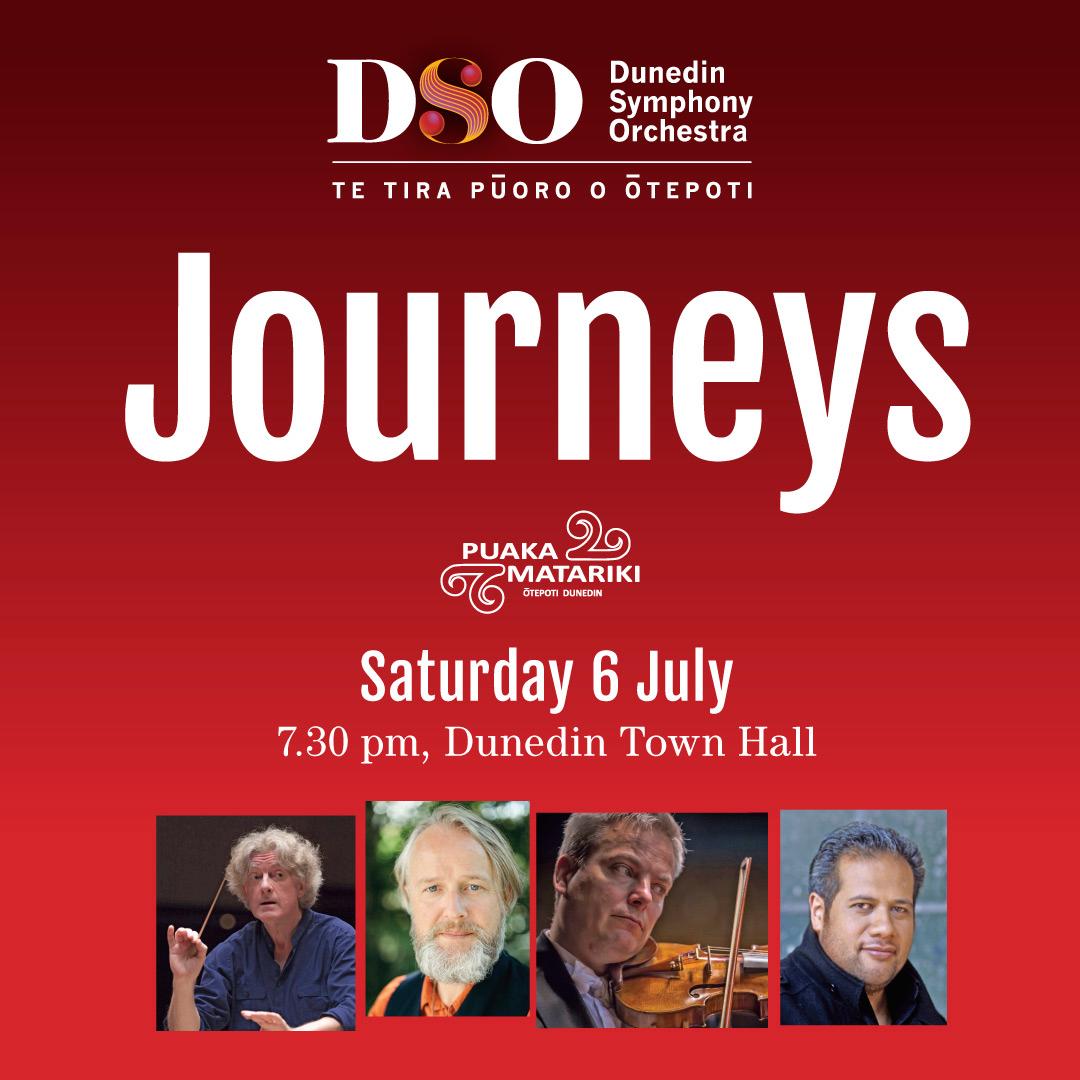News - 31 May 2022
'Celebrating Matariki - Whakanuia Matariki' soloists Ariana Tikao and Alistair Fraser
Ariana Tikao describes the background to the two items she and Alistair Fraser will perform in the 'Celebrating Matariki - Whakanuia Matariki' concert with the DSO on Saturday 2 July, 7.30 pm in the Dunedin Town Hall.
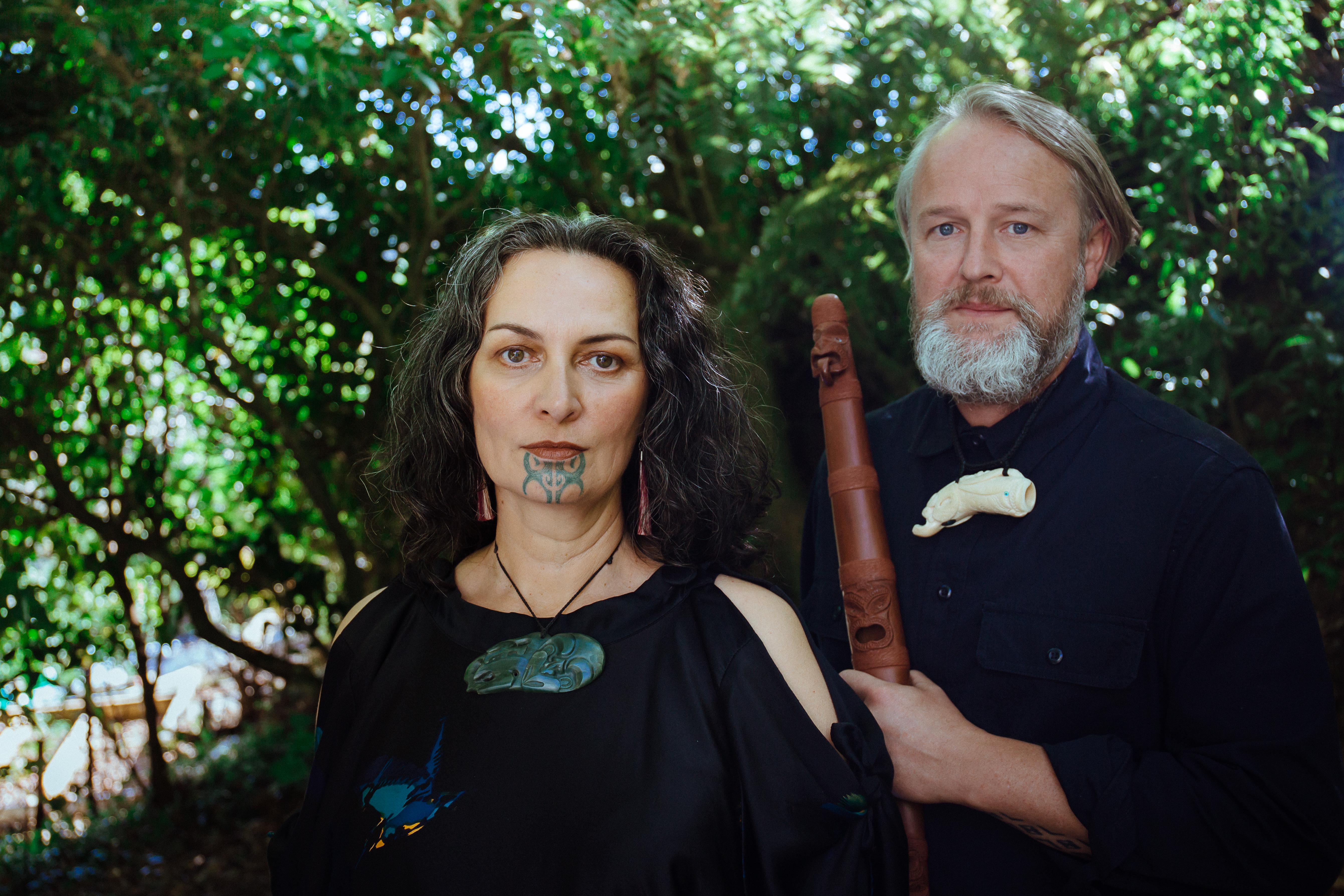
The lyrics of Ko te tātai whetū come from a mōteatea (traditional chant) that is in the Hocken Library that was passed on to Herries Beattie by my great-grandfather Teone Taare Tikao who was a tribal scholar and tohuka.
I had known about the existence of this mōteatea for quite a while and was just waiting for an opportunity to work with it. The inaugural performance with the CSO coincided with the Matariki season and it relates to the sky being adorned with stars by Tāne so it seemed appropriate. I find the story of Hinetītama transforming herself into Hinenuitepō quite moving, and in the lyrics of the mōteatea she is telling Tāne to go back to earth and bring their children up and instructs him to go and place the strars in the sky. In this text I feel like she has such strength and agency. I feel it is important to revive such mōteatea to bring them to new generations.
It is in three parts, the first is the prequel story of how Hinetītama found out that Tāne was both her husband and father, and leaves to go and live in the underworld, transforming into Hinenuitepō . That first part to me is like storytelling, it is fairly slow and heartfelt. The second part is Hine’s instructions to Tāne, like a massive ‘to-do list’, so it is rhythmic and a faster tempo more like a pātere style. The third part also lists stars and constellations, but is slower and more dreamy. To me it is the feeling of gazing up at the night sky, full of wonder at its beauty. There is more space here between each lyric, and then the taonga pūoro at the end is also quite light, and ends with the technique of playing pūtōrino which Richard Nunns called "sound icicles" which emulates the twinkle of stars. Other taonga used in the piece are my pahū pounamu ‘Te Iriraki o Waitaiki’, kōauau, pūtātara, and the percussionists in the orchestra contribute with tumutumu.
Richard Nunns was meant to collaborate on the commission with Phil Brownlee but due to his worsening health he passed the opportunity on to me, as he had been mentoring me around that time. He was still well enough to support us in the earlier stages, which was very precious, and is why we dedicated the concerto to him.
Having Alistair Fraser – who comes from Dunedin – also playing taonga pūoro will allow the taonga to be played while I am singing, and at times we will both be playing taonga pūoro together, so that will add another dimension to the piece. We look forward to bringing it home to Te Waipounamu, to the place where the original manuscript is cared for. I’m also excited to be performing a new arrangement of my waiata Matariki in celebration of the Māori New Year, also known as Puaka in the south.
Share article:
Other News & Reviews
Stay Tuned.
Keep current about all things DSO.

2024 Dunedin Symphony Orchestra
(Registered as Dunedin Civic Orchestra Incorporated. Registered charity CC34031.)
Address
PO Box 5571
Dunedin 9054
New Zealand
Hanover Hall
65 Hanover Street
Dunedin 9016
New Zealand
